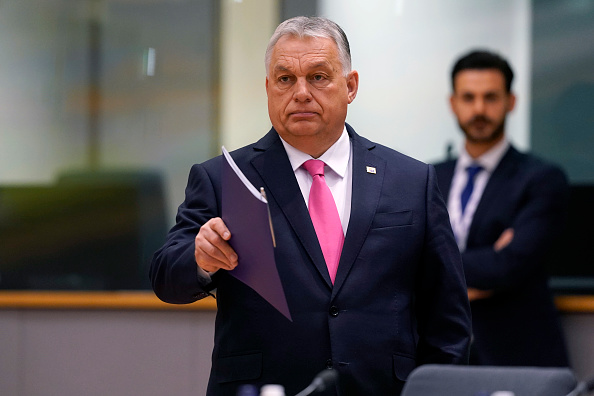Hungarian Prime Minister Viktor Orbán has launched a fierce attack on his country’s political opposition, accusing the Tisza party and its allies in Brussels of deliberately undermining Hungary’s economy and living standards to boost their own political ambitions.
In a statement posted on social media, Orbán claimed that Hungarian opposition MEPs aligned with the Tisza party conspired with European Union officials to damage Hungary’s economy and healthcare system. He described it as “a dark day for Hungarian democracy,” arguing that opposition politicians were working not for the interests of Hungarian citizens but rather against them.
“They agreed to destroy the Hungarian economy, the Hungarian healthcare and to destroy the living standards of Hungarians, in order to help the Tisza party come to power,” Orbán wrote. He further called for those “working against Hungarians in Brussels” to be removed from Hungarian public life altogether.
The remarks follow controversial comments made this week in the European Parliament’s Budget Control Committee by Kinga Kollár, an MEP from the Tisza party, part of the Hungarian opposition led by Péter Magyar. During the meeting, Kollár openly acknowledged the severe impact of the EU’s decision to freeze billions of euros in funding to Hungary due to alleged infringements of EU values by the conservative government in Budapest.
“As a Hungarian, I have to say that [the rule of law procedure] has proven to be very effective,” Kollár said, pointing out that approximately €21 billion in funds remain frozen, with around €1 billion already lost entirely.
“It has had a serious impact on the Hungarian state. It cannot invest in public infrastructure. It cannot support the Hungarian economy and cannot provide basic social services to its people. Just to highlight a few examples from the RRF (Recovery and Resilience Facility), 50 hospitals could have been renovated, which did not happen. So you can actually say the conditionality regulation has been very effective and has had a very effective impact on the everyday lives of Hungarians,” Kollár stated.
Kollár added that, while these consequences are severe for Hungarians, they have worked out well politically for the opposition.
“On the positive side, the deteriorating standard of living has actually strengthened the opposition, and I am very positive about the ’26 elections,” she quipped.
Her comments drew sharp reactions from both domestic officials and European counterparts. German MEP Daniel Freund, a vocal critic of the Orbán government, responded to Kollár’s remarks by saying, “I’m glad it hurts.”
The Hungarian government was quick to seize on Kollár’s statement as evidence of what it has long claimed: that opposition figures in Hungary are colluding with Brussels at the expense of their own people.
Balázs Orbán, the Secretary of State for International Communication and a close ally of the Prime Minister, accused Kollár of celebrating the financial pain inflicted on Hungary for political gain. He condemned her for “praising the deteriorating standard of living of the Hungarian people due to frozen EU funding as it helps them get elected.”
Political analysts have also weighed in on the controversy. Writing in Mandiner, analyst Attila Tibor Nagy argued that Kollár’s comments were a serious misstep, effectively handing Viktor Orbán and Fidesz a potent line of attack. “Kollár seems to have slept through the political events of the past decades and did not grasp the context in which her words were placed,” Nagy observed, adding that while polling has recently favored the Tisza party, this incident could hurt their momentum heading toward the next election.






